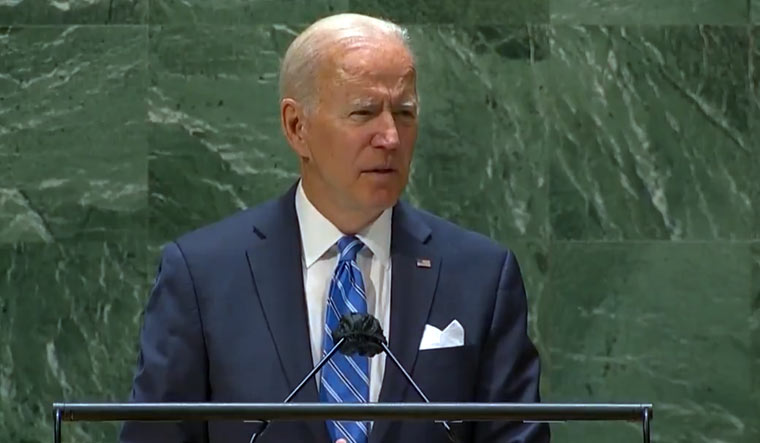The Joe Biden administration in the US will have to deal with a slew of crises in the coming week, the proximate one being the threat of a looming government shutdown at midnight of Thursday. In the background will also be the prospect of a disastrous US debt default, which has been assigned an October 18 deadline.
What are the issues and how are they connected?
What is a government shutdown? A shutdown happens when most government agencies stop functioning because of lack of funds, and federal workers are furloughed, often without pay. In this specific scenario, a shutdown would be cataclysmic for the country which is struggling under the coronavirus pandemic—even the US CDC could be affected, at a time when all hands are needed on deck.
What is the debt default scenario, and how is it connected to the shutdown? The debt default happens when, simply put, the US treasury runs out of money to pay bondholders across the world and its own bills. The result would be nothing short of a massive recession, and economic impacts across the globe. The only way to avert the catastrophe would be to raise the debt ceiling limit—the maximum amount the US can borrow from the Federal Reserves to pay its debts. That is where the politics comes in, and the connection to the shutdown.
The Democrats had passed a bill that would have funded the government (averting the shutdown), and raised the borrowing limit, but the Republicans voted against it. Republicans want the shutdown aversion bill separated from the borrowing limit bill—the latter is a hot potato, and to vote for a bill that raises debt limits is considered politically toxic. Republican leader Mitch McConnell has said he wants to fund the government and prevent a devastating debt default, but wants to force Democrats to split the package in two and take the politically uncomfortable debt ceiling vote on their own. "Republicans are not rooting for a shutdown or a debt limit breach," he said.
Will the US default on the debt?
Very, very, very unlikely. It has never happened before in the nation's history, and the two parties are expected to reach a consensus before the October deadline. Even if the politicians fail to reach an agreement, the US Federal Reserve can still exercise some extraordinary measures to remedy the situation.
Treasury Secretary Janet Yellen has told the Congress that the Treasury Department will likely exhaust all of its extraordinary measures to avoid an unprecedented default on the government's obligations by October 18. Yellen warned Congress three weeks ago that the Treasury would run out of maneuvering room by mid-October. In a Tuesday letter, she said economists were able to issue a specific date based on the amount of revenue the US had received in September from corporate and private quarterly tax payments.
US President Joe Biden's legislative agenda under threat
With mounting pressure, Biden and Democrats in Congress strained to trim back a crucial $3.5 trillion government overhaul to win support from two key holdout senators ahead of make-or-break deadlines for votes. Child care subsidies could be offered for several years, or just a few. Funding to expand health care programs could start later or end sooner. Tax hikes on corporations and the wealthy may be adjusted. And provisions to fight climate change or curb prescription drug prices could change.
With Republicans solidly opposed and no votes to spare, Democrats are poised to adjust the tax proposals and spending goals to meet the overall size demanded by party colleagues Joe Manchin of West Virginia and Kyrsten Sinema of Arizona. The two say Biden's plan is too big but are publicly quiet about a number they can live with.
The president met separately with them at the White House seeking agreement before a Thursday test vote.
Assuming nothing, House Speaker Nancy Pelosi told reporters at the Capitol, In the next day or so we hope to come to a place where we can all move forward." The stakes are as high as ever as Biden and his party try to accomplish a giant legislative lift, promising a vast rewrite of the nation's tax priorities and spending goals with an oh-so-slim majority in Congress.
Biden is under pressure to close the deal with Manchin and Sinema who are seen as linchpins for the final package. The two centrist senators have said they can't support the proposed price tag and are now being pressed to say how high they are willing to go.
And it is not just Biden's fellow Democrats in the Senate. A small number of House Democrats also are bristling at the far-reaching scope of Biden's domestic agenda and demanding changes before agreeing to vote yes.




